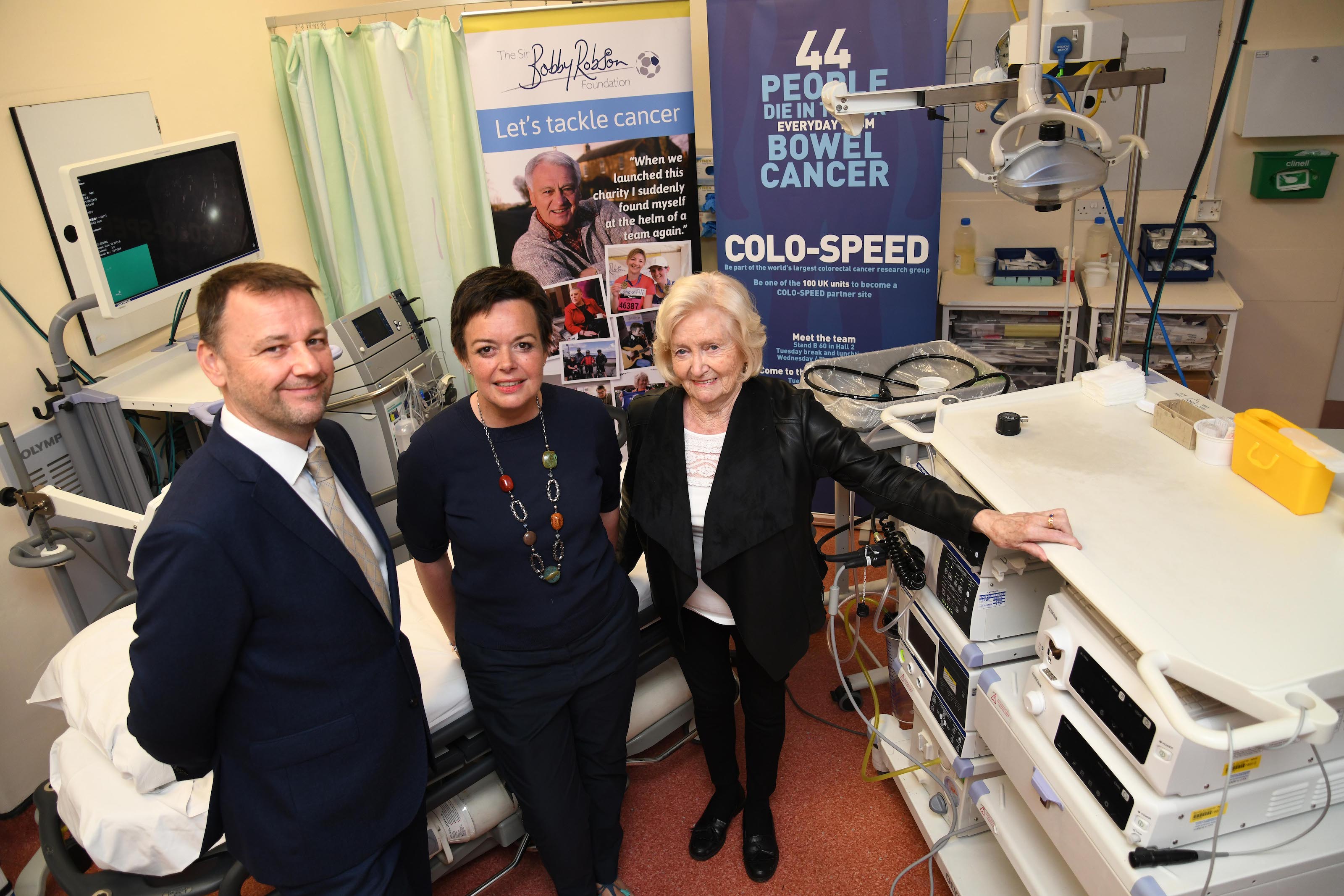
The COVID-19 pandemic has had a major impact upon society as a whole and this has affected medical research. COLO-SPEED, COLO-COHORT and associated studies had to pause recruitment of patients during the peak of the pandemic. Many members of research teams were redeployed to both COVID-19 patient care and to COVID-19 based research. Teams were involved in studies which improved COVID-19 health outcomes for hospitalised patients (RECOVERY and REMAPCAP) and understanding demographics/complications on the new virus (ISARIC) amongst many other COVID-19 specific studies. The COLO-SPEED team also made major contributions to endoscopy based COVID-19 research (links to papers). Some colorectal cancer laboratory and non-clinical research were able to move forward during this time.
As health services began to get on top of COVID-19 we were able to begin to open up non COVID research again and COLO-SPEED and COLO-COHORT recommenced clinical recruitment in July 2020 - initially at the sponsor site of South Tyneside and Sunderland NHS Trust. Given the ongoing impact of COVID-19 the study team have made changes to studies to ensure the safest possible delivery of research for both patients and research staff. Changes include reduced face to face contact with patients with much of the research consultation now conducted via telephone. Since the introduction of these COVID-19 related changes, feedback from both patients and research staff have been extremely positive. The number of patients being offered the opportunity to participate in research has now increased significantly since July 2020 with the vast majority of patients coming through endoscopy services pleased to be able to engage with researchers. We are now restarting roll out to participating sites across the UK with University Hospital of North Tees and Kettering General Hospital commencing recruitment in recent weeks.
As in all areas of life COVID-19 is having an ongoing impact but we are managing this and must remember that other diseases such as colorectal cancer have not gone away . We are determined to continue to prioritise colorectal cancer research to reduce unnecessary deaths from this disease.
- Safely restarting GI endoscopy in the era of COVID-19
- Multicentre prospective study of COVID-19 transmission following outpatient GI endoscopy in the UK
- Impact of the COVID-19 pandemic on UK endoscopic activity and cancer detection: a National Endoscopy Database Analysis
- Restarting gastrointestinal endoscopy in the deceleration and early recovery phases of COVID-19 pandemic: Guidance from the British Society of Gastroenterology
- COVID-19 as a barrier to attending for gastrointestinal endoscopy: weighing up the risks







